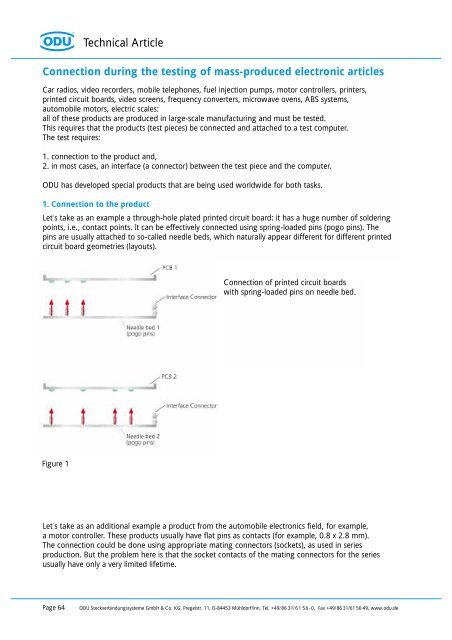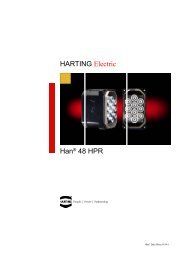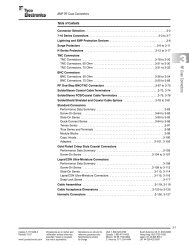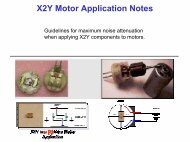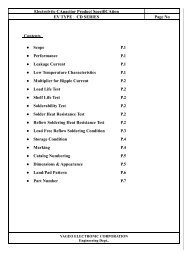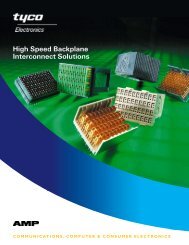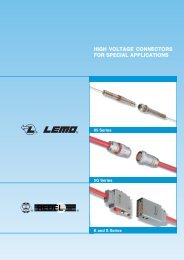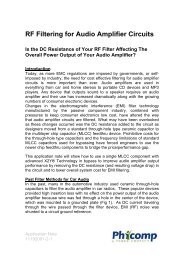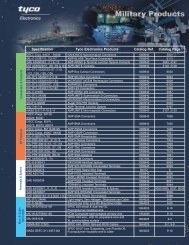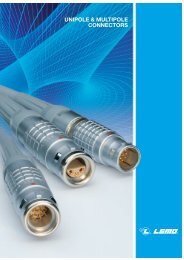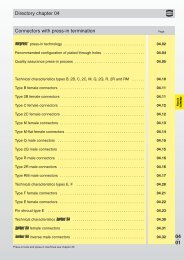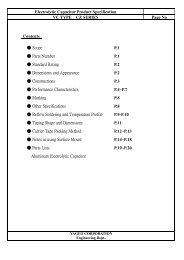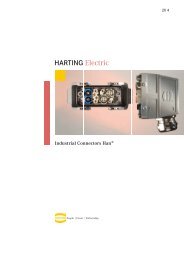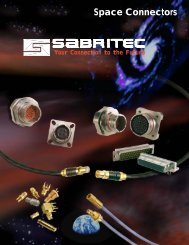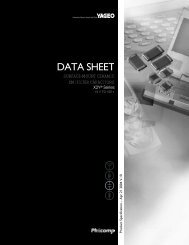ODU MAC
ODU MAC
ODU MAC
You also want an ePaper? Increase the reach of your titles
YUMPU automatically turns print PDFs into web optimized ePapers that Google loves.
Technical ArticleConnection during the testing of mass-produced electronic articlesCar radios, video recorders, mobile telephones, fuel injection pumps, motor controllers, printers,printed circuit boards, video screens, frequency converters, microwave ovens, ABS systems,automobile motors, electric scales:all of these products are produced in large-scale manufacturing and must be tested.This requires that the products (test pieces) be connected and attached to a test computer.The test requires:1. connection to the product and,2. in most cases, an interface (a connector) between the test piece and the computer.<strong>ODU</strong> has developed special products that are being used worldwide for both tasks.1. Connection to the productLet´s take as an example a through-hole plated printed circuit board: it has a huge number of solderingpoints, i.e., contact points. It can be effectively connected using spring-loaded pins (pogo pins). Thepins are usually attached to so-called needle beds, which naturally appear different for different printedcircuit board geometries (layouts).Connection of printed circuit boardswith spring-loaded pins on needle bed.Figure 1Let´s take as an additional example a product from the automobile electronics field, for example,a motor controller. These products usually have flat pins as contacts (for example, 0.8 x 2.8 mm).The connection could be done using appropriate mating connectors (sockets), as used in seriesproduction. But the problem here is that the socket contacts of the mating connectors for the seriesusually have only a very limited lifetime.Page 64<strong>ODU</strong> Steckverbindungssysteme GmbH & Co. KG, Pregelstr. 11, D-84453 Mühldorf/Inn, Tel. +49/86 31/61 56-0, Fax +49/86 31/61 56 49, www.odu.de


